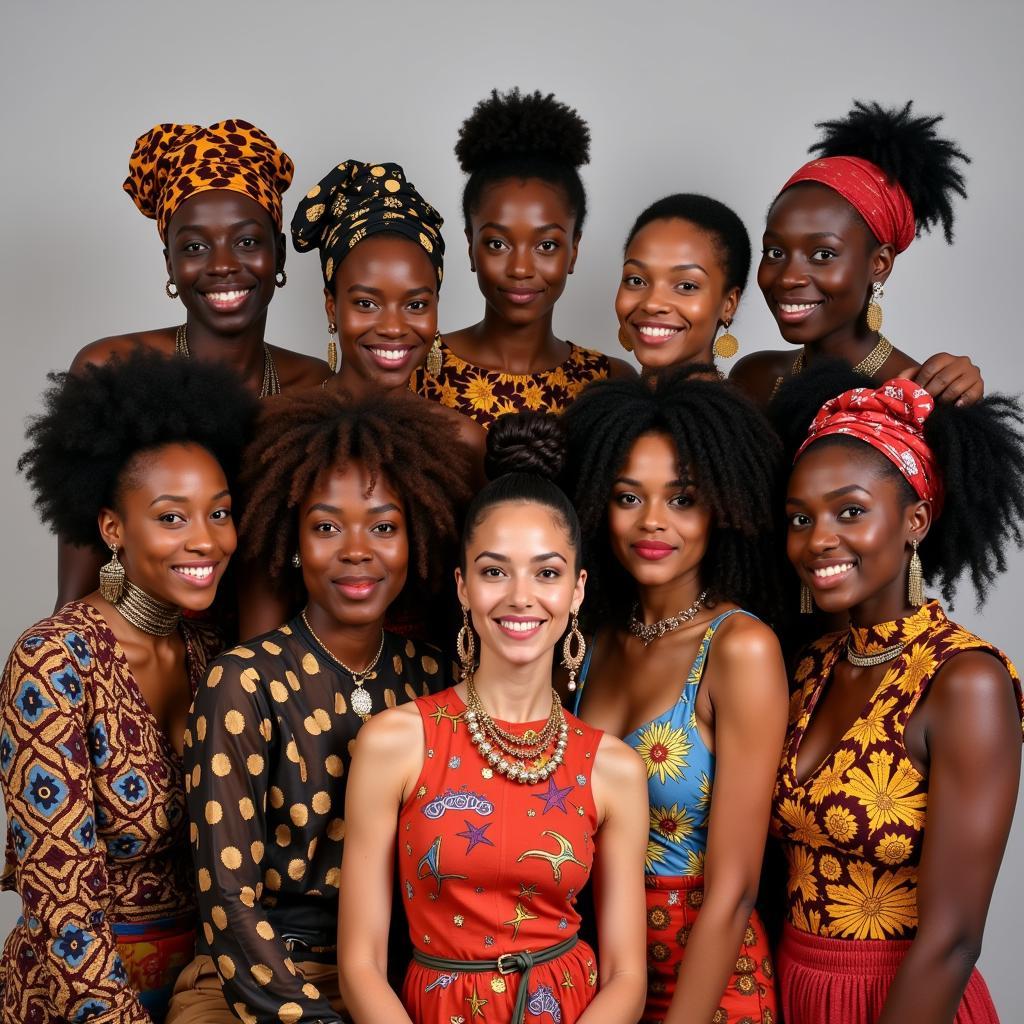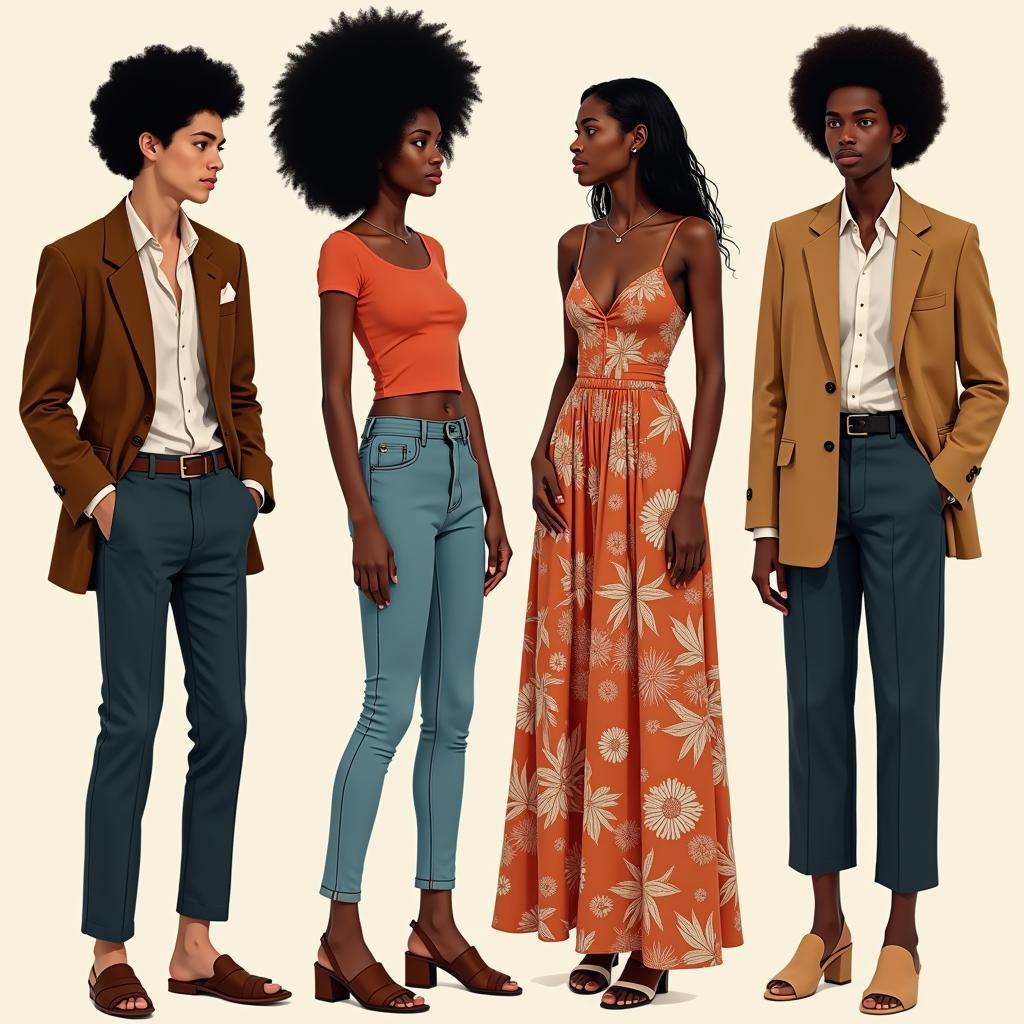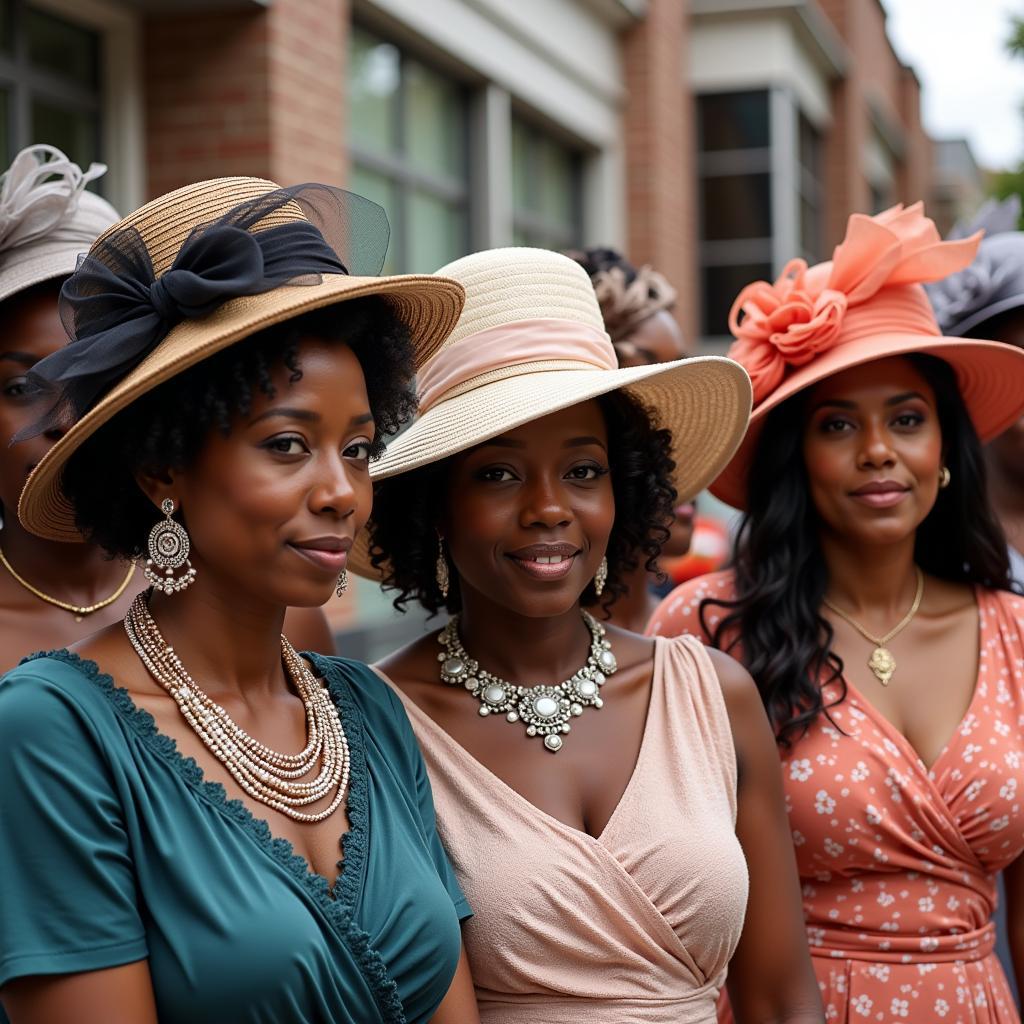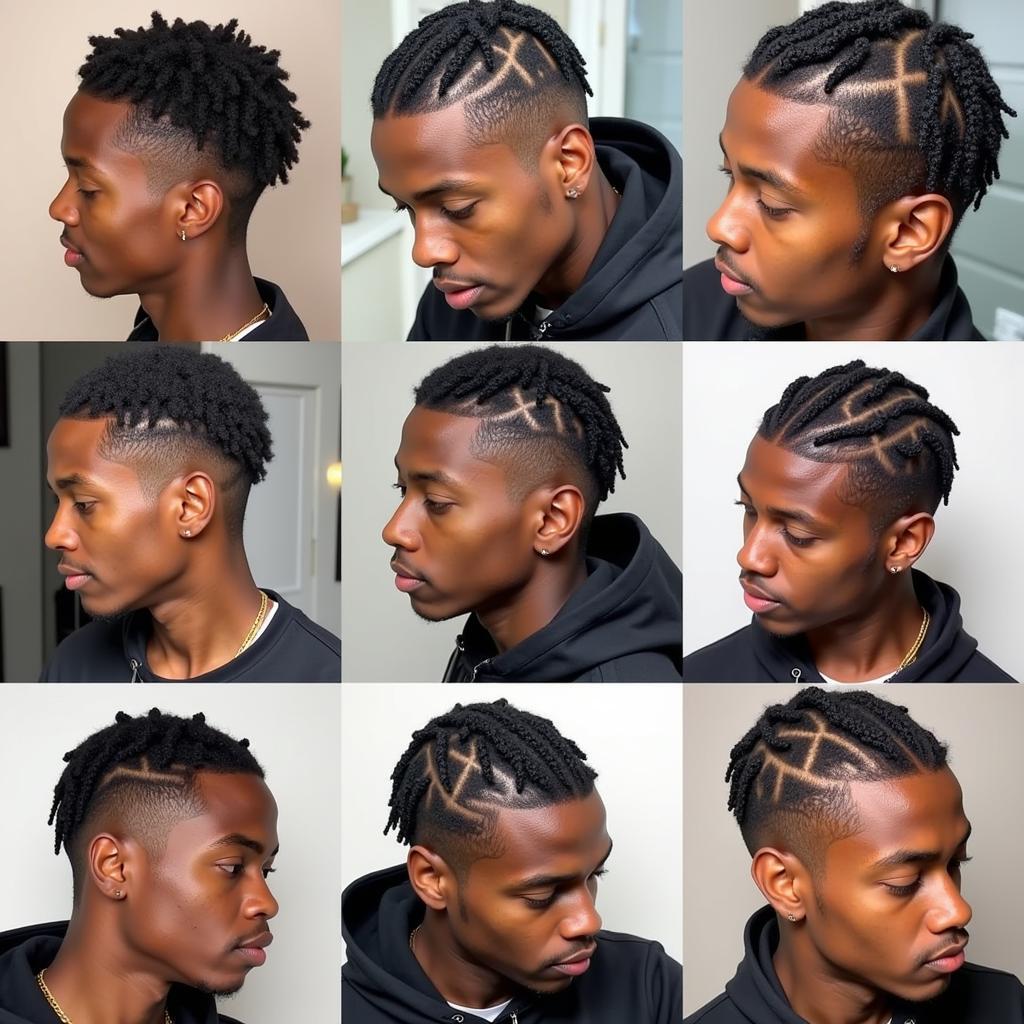African American Fashion in the 1970s: A Revolutionary Era of Style
African American Fashion In The 1970s was a dynamic reflection of social and political change, marking a significant shift from the trends of previous decades. This era saw the rise of distinct styles that embraced Black identity and cultural pride, challenging mainstream fashion norms and paving the way for future trends. From the influence of the Black Power movement to the rise of disco, the 70s witnessed a vibrant explosion of creativity and self-expression in African American clothing and hairstyles.
The Black Power movement played a crucial role in shaping African American fashion during the 1970s. It encouraged a return to natural hairstyles and traditional African garments, symbolizing a rejection of Eurocentric beauty standards and an embrace of Black heritage. This led to the popularization of the Afro, braids, and cornrows, alongside dashikis, and other African-inspired attire. These styles became powerful symbols of Black pride and cultural identity. The rise of blaxploitation films further amplified these trends, showcasing stylish and empowered Black characters who embraced their heritage through their clothing.
The Rise of Afrocentric Styles and the Natural Hair Movement
The 1970s witnessed a surge in Afrocentric fashion, reflecting a growing awareness and appreciation of African culture. This trend emphasized natural beauty and incorporated traditional African elements into contemporary clothing. Dashikis, vibrant patterned fabrics, and jewelry inspired by African art became increasingly popular. This embrace of African heritage not only influenced fashion but also music, art, and other aspects of Black culture.
What were the key elements of Afrocentric fashion in the 1970s? The answer lies in the natural hair movement and the adoption of traditional African clothing styles, like the dashiki. These choices reflected a desire to connect with African roots and celebrate Black identity.
 African American Fashion: Afrocentric Styles in the 1970s
African American Fashion: Afrocentric Styles in the 1970s
The Influence of Music and Entertainment on 1970s Style
Music and entertainment played a significant role in shaping African American fashion trends. The rise of disco, funk, and soul music brought with it glamorous and flamboyant styles. Platform shoes, bell bottoms, sequined dresses, and jumpsuits became staples of the disco era. Iconic figures like Diana Ross and Donna Summer, along with films like Mahogany, popularized these trends, influencing not only African Americans but also mainstream fashion.
How did music influence fashion in the 70s? Think platform shoes, bell bottoms, and dazzling sequined outfits, all inspired by the vibrant energy of disco and funk music. Artists like Diana Ross became fashion icons, shaping the trends of the decade. For those interested in the world of music, check out African American DJs.
The Bold and the Beautiful: Expressing Individuality through Fashion
Beyond the overarching trends, the 1970s championed individual expression. People experimented with different styles, mixing and matching elements to create unique looks. This personalized approach to fashion reflected the growing emphasis on self-discovery and celebrating one’s individuality. Whether it was a tailored suit with an Afro or a flowing maxi dress with platform sandals, African Americans embraced fashion as a powerful tool for self-expression. Those interested in hair and beauty can explore African American hair wigs and hairpieces.
“The 1970s was a time of great experimentation,” notes Dr. Aisha Kenyatta, a historian specializing in African American culture. “People weren’t afraid to be bold and express themselves through their clothing. It was a decade that truly embraced individuality.”
 African American Fashion: Individual Style in the 1970s
African American Fashion: Individual Style in the 1970s
The Legacy of 1970s African American Fashion
African American fashion in the 1970s left a lasting impact on the fashion industry. The emphasis on natural beauty, the embrace of cultural heritage, and the celebration of individuality continue to inspire designers and influence contemporary trends. From the natural hair movement to the resurgence of retro styles, the echoes of the 70s can be seen in fashion today. For those intrigued by iconic figures, see African famous model queen. You might also be interested in African American films to see these styles in action. If hairstyles are your passion, explore African hairstyle james.
Professor Kwame Nkrumah, a renowned fashion scholar, remarks, “The impact of 1970s African American fashion is undeniable. It challenged established norms and paved the way for greater diversity and representation in the industry.”
In conclusion, African American fashion in the 1970s was a revolutionary era that celebrated Black culture, individuality, and self-expression. This period saw the rise of significant trends that continue to influence fashion today, leaving an indelible mark on the industry.
FAQ
- What were the most popular hairstyles for African Americans in the 1970s? The Afro, braids, and cornrows were highly popular, symbolizing a return to natural hair and a rejection of Eurocentric beauty standards.
- What is a dashiki? A dashiki is a loose-fitting, colorful garment, often adorned with intricate embroidery, originating from West Africa and adopted as a symbol of Black pride.
- How did the Black Power movement influence fashion? It promoted natural hairstyles and African-inspired clothing as expressions of Black identity and cultural pride.
- What were some popular fashion items in the 1970s? Bell bottoms, platform shoes, sequined dresses, and jumpsuits were key items, particularly influenced by the disco era.
- Who were some of the fashion icons of the 1970s? Diana Ross and Donna Summer were among the prominent figures who shaped fashion trends during the decade.
- What is Afrocentric fashion? Afrocentric fashion incorporates elements of traditional African clothing and styles into contemporary designs, emphasizing natural beauty and cultural heritage.
- How did 1970s fashion reflect social change? The emphasis on individuality and self-expression in fashion mirrored the broader social and political changes happening during that decade.
Related Questions and Further Exploration:
- What are some contemporary designers inspired by 1970s African American fashion?
- How has the natural hair movement evolved since the 1970s?
Call to Action:
Need assistance or have further questions? Contact us 24/7:
Phone: +255768904061
Email: [email protected]
Address: Mbarali DC Mawindi, Kangaga, Tanzania.
Our customer service team is ready to help!

